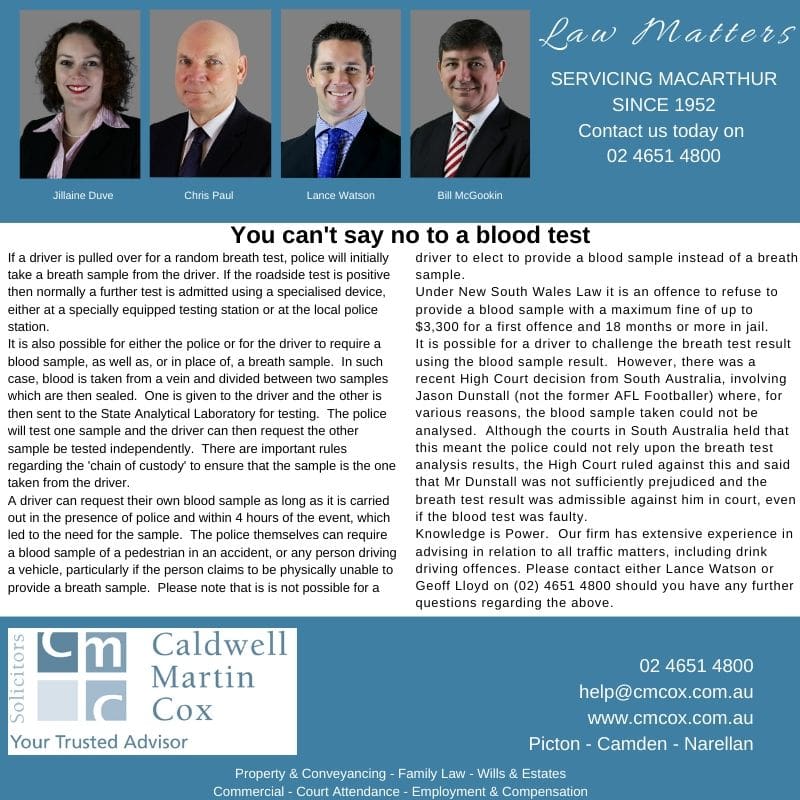As we head into the Silly Season, do you know what to do if you’re charged with drink driving? Are you required to provide a blood sample? Are you entitled to have the sample tested independently? Read our latest article in The District Reporter.
Our solicitors have decades of experience so give us a call on 4651 4800 if you need help with criminal law or traffic matters.
If a driver is pulled over for a random breath test, police will initially take a breath sample from the driver. If the roadside test is positive then normally a further test is admitted using a specialised device, either at a specially equipped testing station or at the local police station.
It is also possible for either the police or for the driver to require a blood sample, as well as, or in place of, a breath sample. In such case, blood is taken from a vein and divided between two samples which are then sealed. One is given to the driver and the other is then sent to the State Analytical Laboratory for testing. The police will test one sample and the driver can then request the other sample be tested independently. There are important rules regarding the ‘chain of custody’ to ensure that the sample is the one taken from the driver.
A driver can request their own blood sample as long as it is carried out in the presence of police and within 4 hours of the event, which led to the need for the sample. The police themselves can require a blood sample of a pedestrian in an accident, or any person driving a vehicle, particularly if the person claims to be physically unable to provide a breath sample. Please note that it is not possible for a driver to elect to provide a blood sample instead of a breath sample.
Under New South Wales Law it is an offence to refuse to provide a blood sample with a maximum fine of up to $3,300 for a first offence and 18 months or more in jail.
It is possible for a driver to challenge the breath test result using the blood sample result. However, there was a recent High Court decision from South Australia, involving Jason Dunstall (not the former AFL Footballer) where, for various reasons, the blood sample taken could not be analysed. Although the courts in South Australia held that this meant the police could not rely upon the breath test analysis results, the High Court ruled against this and said that Mr Dunstall was not sufficiently prejudiced and the breath test result was admissible against him in court, even if the blood test was faulty.
Knowledge is Power. Our firm has extensive experience in dealing in relation to all traffic matters, including drink driving offences. Please contact either Lance Watson or Geoff Lloyd on (02) 4651 4800 should you have any further questions regarding the above.




